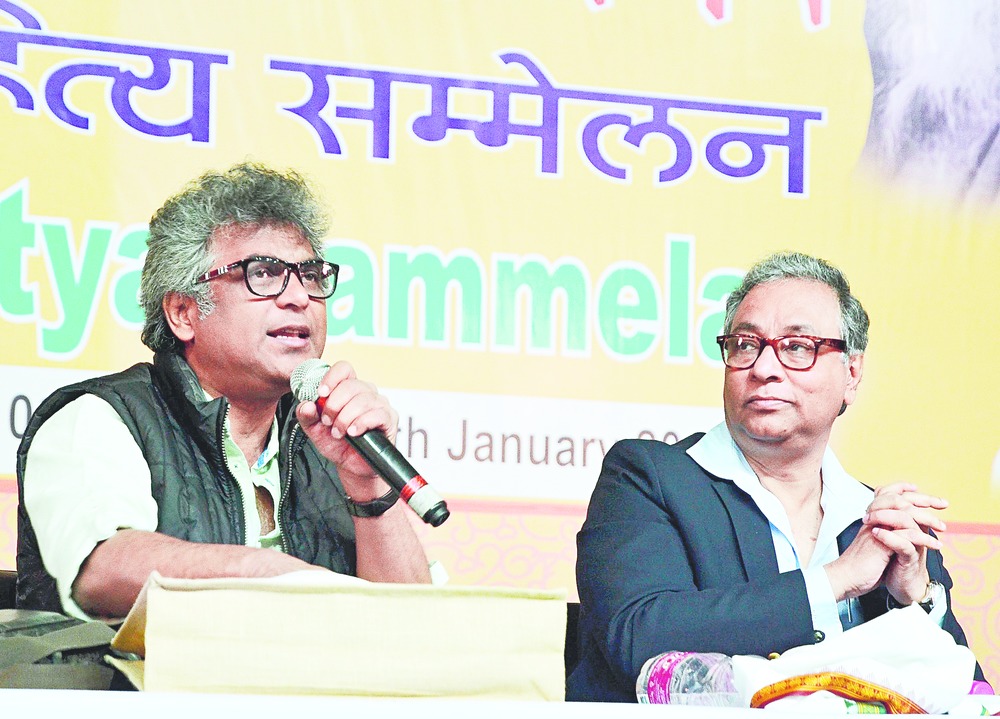
Two very different sets of ideas on the same topic were aired when Bengali filmmaker Suman Mukherjee and Prasar Bharati CEO Jawhar Sircar spoke at the national literary meet organised by Nikhil Bharat Banga Sahitya Sammelan in Ranchi on Tuesday.
The duo were invited to voice their opinions at a session on " Rajsattwa O Sanskriti" (Power and Culture) on the concluding day of the meet at Harivansh Tana Bhagat Indoor Stadium, Hotwar.
Mukherjee, the name behind films like Herbert, Chaturanga and Shesher Kobita, said that irrespective of who it was - whether artists, writers or filmmakers - it was really difficult for creative people to compromise with the ruling class, but they had to continue doing their work despite the odds they faced.
Narrating his personal experience with the censor imposed by Film Certification Board of India, he tried to emphasis how it came in the way of an artist, who needed to communicate with people through his medium.
Offering a counter-argument, Sircar opined that the authorities or the powers controlling the state should not always be treated as an enemy that was active against spreading culture. He pointed out that many royalties in the country patronised art and culture and helped those flourish over the ages.
"They were not always hostile and should not be treated as an enemy," he said, citing a few examples, including the Sanskrit epic Rajatarangini by Kalhana.
The nature of power also changes from time to time, he further said, explaining that, besides the state, corporate power had to be reckoned with these days.
"Crowd sourcing is becoming popular now and will perhaps emerge as an important power in the years to come," Sircar said, adding that he might also become a chosen alternative for upright creators.
Bengal minister and dramatist Bratya Basu was also expected to speak, but he did not arrive, much to the disappointment of many delegates.
But what was more disappointing perhaps was the fact that despite nearly 1,400 delegates attending the 88th edition of the meet in Ranchi, these sessions and eight more, held over three days, were attended by not more than 300.
"You can't expect all to be equally serious," said Arun Sarkar from Suri, adding that some might be more interested in sightseeing.
"During interaction with those from other states, we come to know about what they do for promotion of Bengali culture and try to improve our own initiatives," said Shankar Moitra from Mumbai when asked about the utility of such meets.










